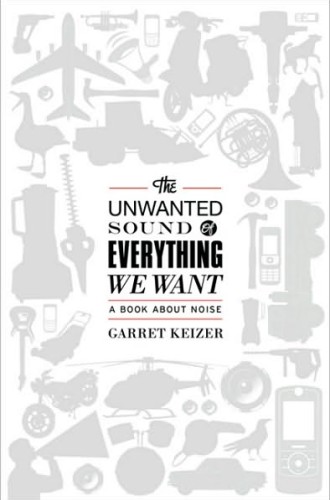Noise level
I am cranky about noise. TVs blaring in waiting rooms, background music that drowns out conversation, earsplitting volume at the movies. On pastoral calls I appeal to mute the TV. At movie theaters I beg the manager for mercy.
My husband has begun to find my mounting zeal tiresome. “Why don’t you just stay home?” he challenges. But our home environment is noisy too. Traffic at the intersection, helicopters overhead, bar patrons laughing and arguing as they spill out into the street, maudlin confessions of cell phone users clearly audible in my bedroom late into the night.
“Noise is not the most important problem in the world,” Garret Keizer declares in the opening sentence of The Unwanted Sound of Everything We Want. It’s a surprising first move, this disarming demurral, and it convicts my inner crank. But Keizer goes on to vindicate those bothered by noise, even as he reframes, broadens and refines the problem. The result is a wide-ranging, ambitious and strikingly original argument about the politics of sound.





